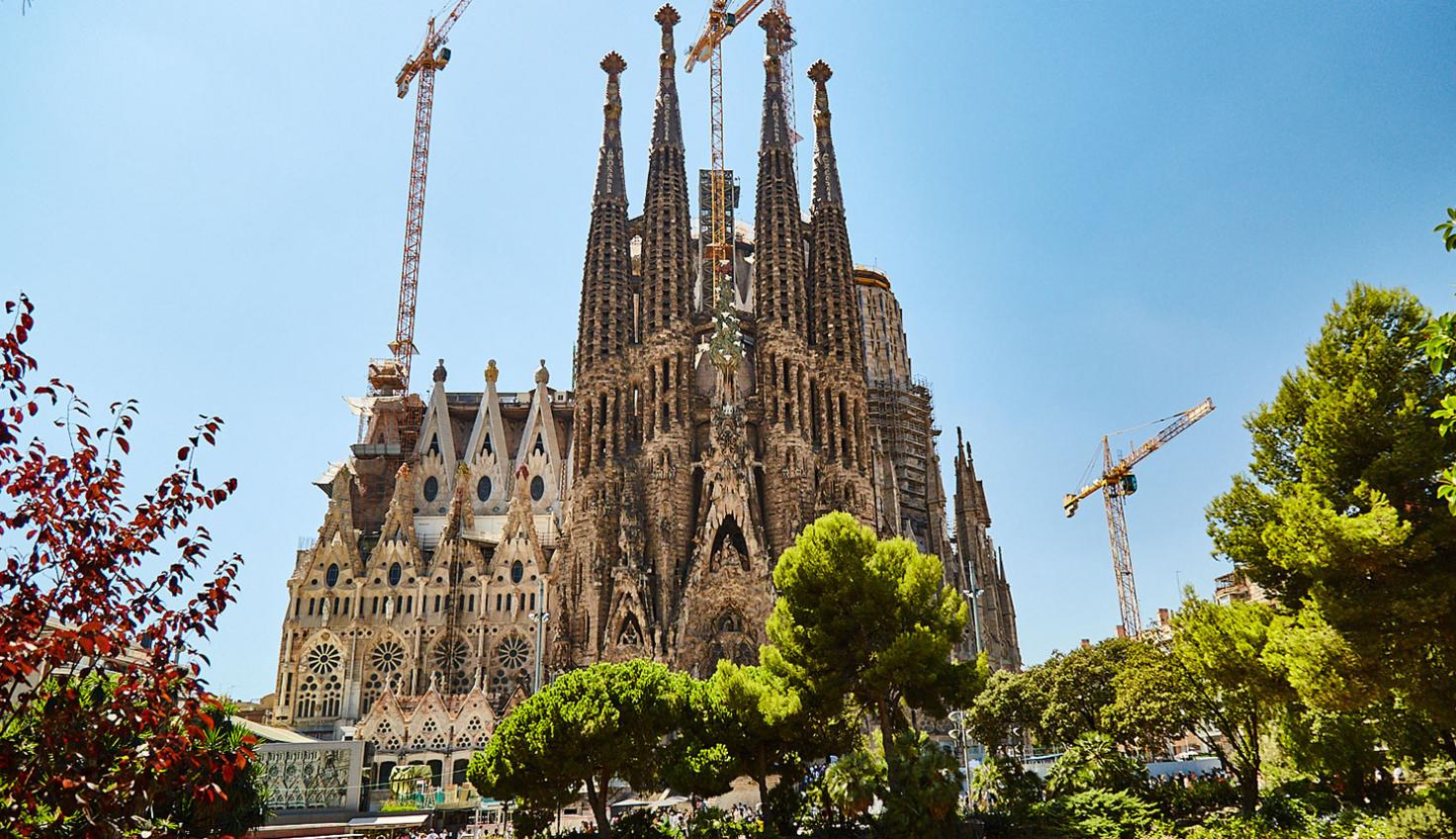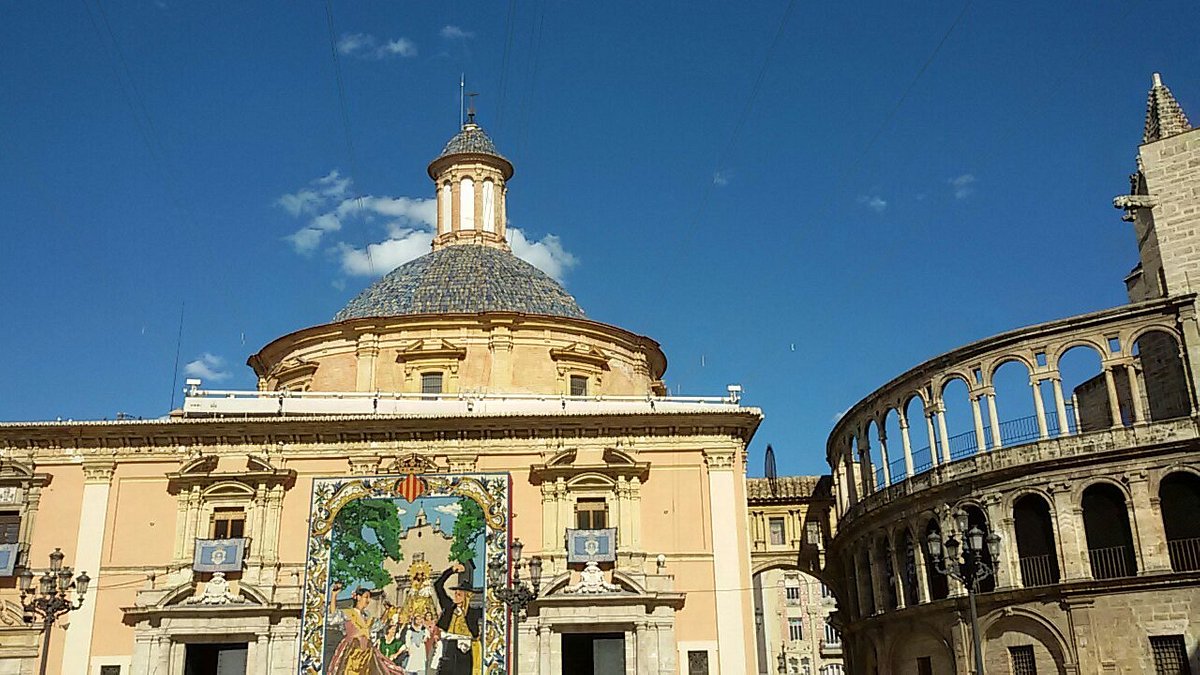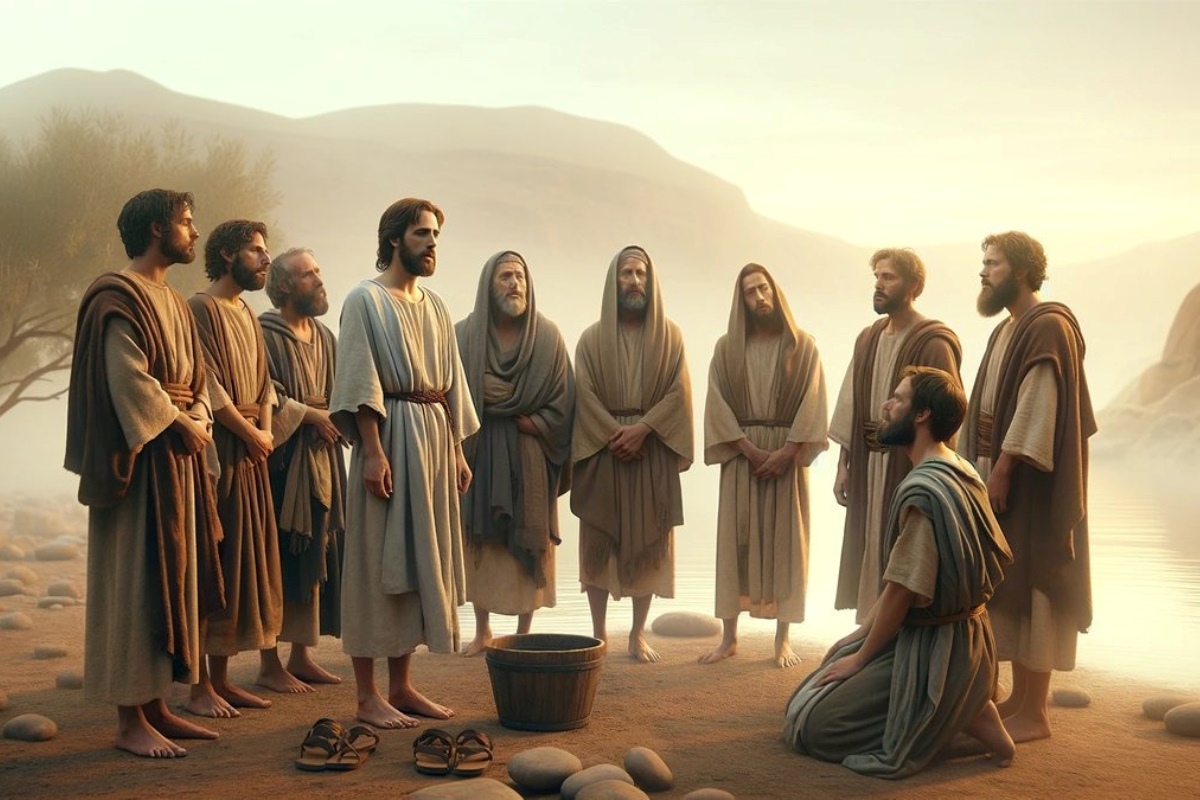Home>Theology and Spirituality>Who Was St John Baptist De La Salle


Theology and Spirituality
Who Was St John Baptist De La Salle
Published: February 23, 2024
Jason DeRose, Managing Editor at Christian.net, uses his expertise in religion and journalism to deepen understanding of faith's societal impacts. His editorial leadership, coupled with a strong academic background, enriches the platform’s diverse content, earning him recognition in both journalism and religious circles.
Discover the life and legacy of St John Baptist De La Salle, a prominent figure in theology and spirituality. Learn about his contributions and influence in the Catholic Church.
(Many of the links in this article redirect to a specific reviewed product. Your purchase of these products through affiliate links helps to generate commission for Christian.net, at no extra cost. Learn more)
Table of Contents
Early Life and Education
St. John Baptist de La Salle, the patron saint of teachers, was born into a noble family on April 30, 1651, in Reims, France. His early life was marked by privilege and comfort, as he grew up in a prominent household. Despite the affluence surrounding him, young John Baptist displayed a compassionate and empathetic nature, traits that would later define his life's work.
After receiving a solid education at the Jesuit College in Reims, John Baptist continued his studies at the University of Paris, where he excelled in the field of theology. His academic pursuits were not merely a means to gain knowledge; they laid the foundation for his future vocation in serving the marginalized and underprivileged.
Following the completion of his studies, John Baptist was ordained as a priest in 1678. However, his journey was not without challenges. Despite his noble background, he encountered resistance from his family when he expressed his desire to serve the poor and educate children. Undeterred by the opposition, he remained steadfast in his commitment to his calling, demonstrating unwavering determination and faith.
John Baptist's encounter with Adrian Nyel, a layman dedicated to providing education to the poor, proved to be a pivotal moment in his life. This meeting ignited a passion within John Baptist to address the pressing need for accessible and quality education for all children, regardless of their social status. His encounter with Nyel served as a catalyst, propelling him toward a path of profound significance and impact.
The convergence of John Baptist's theological knowledge, compassionate spirit, and fervent desire to effect positive change culminated in his pivotal decision to establish schools for the poor. This transformative step marked the beginning of his enduring legacy as a pioneer in educational reform and a champion of equal opportunities for all.
John Baptist's early life and education not only shaped his character but also laid the groundwork for his remarkable contributions to the field of education. His unwavering dedication to uplifting the marginalized and his commitment to providing accessible education to all children exemplify the profound impact of his formative years on his life's mission.
Read more: Who Is St John Baptist De La Salle
Founding the Institute of the Brothers of the Christian Schools
In 1680, St. John Baptist de La Salle took a momentous leap of faith by founding the Institute of the Brothers of the Christian Schools, a religious community dedicated to providing free education to the poor. This groundbreaking initiative marked a significant departure from the prevailing educational norms of the time, as it sought to address the pressing need for accessible and quality education for marginalized children.
Driven by his unwavering commitment to social justice and his deep-rooted belief in the transformative power of education, John Baptist gathered a group of like-minded individuals who shared his vision. Together, they embarked on a mission to establish a community of educators, known as the Christian Brothers, who would devote themselves wholeheartedly to the noble cause of educating the underprivileged.
The establishment of the Institute represented a radical departure from the prevailing educational landscape, as it emphasized the provision of education to those who had been historically overlooked. The Brothers, under John Baptist's guidance, dedicated themselves to the holistic development of their students, instilling not only academic knowledge but also moral values and practical skills essential for navigating life's challenges.
The Institute's founding principles were rooted in the belief that education should be accessible to all, irrespective of social or economic status. This egalitarian approach to education was revolutionary for its time, challenging the existing societal norms and advocating for the rights of every child to receive a comprehensive and empowering education.
As the Institute gained momentum, its impact reverberated throughout France and beyond, inspiring a wave of educational reform and serving as a beacon of hope for countless children who had previously been denied access to learning. John Baptist's visionary leadership and unwavering dedication to the Institute's mission propelled the organization to the forefront of educational innovation, setting a new standard for inclusive and transformative learning environments.
The founding of the Institute of the Brothers of the Christian Schools stands as a testament to John Baptist's enduring legacy as a trailblazer in the field of education. His visionary approach to addressing societal inequalities through education continues to inspire educators and advocates worldwide, underscoring the profound and timeless relevance of his pioneering efforts in reshaping the educational landscape for generations to come.
Educational Reforms and Legacy
St. John Baptist de La Salle's enduring legacy is intricately woven into the fabric of educational reforms that transcended his era and continue to resonate in contemporary educational paradigms. His visionary approach to education, characterized by inclusivity, innovation, and unwavering dedication, laid the groundwork for transformative reforms that have left an indelible mark on the field of education.
Central to John Baptist's educational reforms was his steadfast commitment to providing free, accessible, and quality education to children from all walks of life. His pioneering efforts challenged the prevailing societal norms that perpetuated educational disparities, advocating for the inherent right of every child to receive a comprehensive and empowering education. By prioritizing the needs of the marginalized and underserved, John Baptist reshaped the educational landscape, ushering in an era of inclusivity and equity.
One of the most significant contributions to educational reform attributed to John Baptist is the development of innovative teaching methods. He revolutionized pedagogical approaches by emphasizing interactive and experiential learning, a departure from the traditional rote-based instruction prevalent at the time. His emphasis on engaging students through participatory learning experiences not only fostered a deeper understanding of academic concepts but also nurtured critical thinking and practical skills essential for navigating real-world challenges.
Furthermore, John Baptist's legacy is intricately linked to his holistic approach to education, which extended beyond academic instruction to encompass moral and ethical development. He recognized the importance of instilling values such as compassion, integrity, and empathy in students, thereby nurturing well-rounded individuals poised to contribute meaningfully to society. This holistic vision of education continues to inspire contemporary educators, underscoring the enduring relevance of John Baptist's educational reforms.
The establishment of the Institute of the Brothers of the Christian Schools, under John Baptist's guidance, served as a catalyst for widespread educational reform. The Institute's model of community-based education, facilitated by dedicated Christian Brothers, set a new standard for educational institutions worldwide. Its emphasis on personalized attention, mentorship, and the cultivation of a supportive learning environment exemplified John Baptist's unwavering commitment to nurturing the potential of every student, irrespective of their background or circumstances.
John Baptist's educational reforms and legacy continue to reverberate in modern educational institutions, inspiring educators to embrace inclusive and student-centric approaches to learning. His profound impact on educational paradigms transcends time, serving as a testament to the enduring relevance of his visionary reforms and the transformative power of education when guided by compassion, equity, and unwavering dedication.
Canonization and Feast Day
St. John Baptist de La Salle's unwavering dedication to the field of education and his profound impact on the lives of countless individuals culminated in his canonization as a saint of the Catholic Church. His journey to sainthood is a testament to the enduring legacy of his visionary contributions to education and his exemplary life of service and compassion.
In 1900, Pope Leo XIII officially canonized John Baptist de La Salle, recognizing his remarkable devotion to the welfare of children and his pioneering efforts in establishing accessible and quality education for the underprivileged. This momentous declaration elevated John Baptist to the esteemed status of a saint, affirming his enduring influence and the profound resonance of his life's work.
The canonization of St. John Baptist de La Salle not only honored his extraordinary contributions but also served as an inspiration for educators and advocates worldwide. His canonization highlighted the transformative power of education when guided by compassion, equity, and a steadfast commitment to uplifting the marginalized. It reinforced the timeless relevance of his visionary reforms and the enduring impact of his legacy on the field of education.
The Feast Day of St. John Baptist de La Salle, celebrated on May 15th, serves as a poignant reminder of his indelible imprint on the educational landscape and his enduring relevance as a patron saint of teachers. This annual commemoration provides an opportunity for educators, students, and communities to reflect on John Baptist's exemplary life and the enduring principles that guided his educational mission.
On this special day, educational institutions and communities around the world honor St. John Baptist de La Salle's legacy through various activities, including prayer services, educational symposiums, and acts of service that embody his spirit of compassion and dedication to the welfare of children. The Feast Day serves as a source of inspiration, fostering a renewed commitment to the principles of inclusivity, equity, and transformative education championed by St. John Baptist de La Salle.
As educators and students gather to commemorate the Feast Day, they are reminded of the profound impact of St. John Baptist de La Salle's visionary reforms and his unwavering dedication to providing accessible and quality education to all. His canonization and Feast Day stand as enduring tributes to his remarkable life and serve as a guiding light for all those committed to the noble vocation of education.
St. John Baptist de La Salle's canonization and Feast Day encapsulate the timeless significance of his contributions, inspiring generations to uphold the values of compassion, inclusivity, and transformative education in honor of his enduring legacy.















